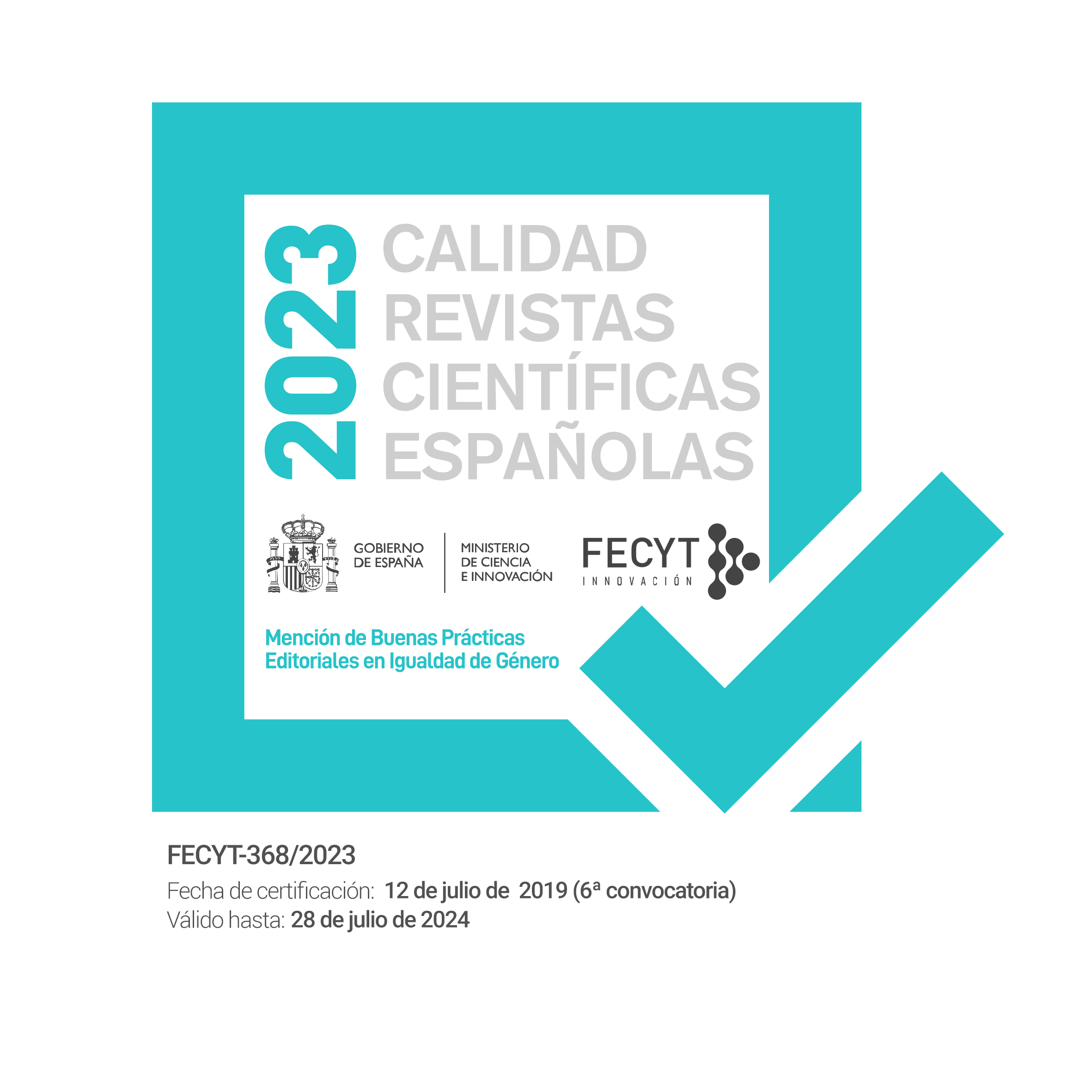A Chicano childhood experience
DOI:
https://doi.org/10.18172/jes.57Abstract
The difficult social and cultural situation that the Chicano community has suffered after the signing of theTreaty of Guadalupe Hidalgo in 1848, has been overtly manifested in the Literature produced by its writers. Themes such as the social and economical conditions of the members of the Chicano community, schooling and housing, the situation of the workers in the fields, portrayals of the first organized political movements, family and domestic relationships etc., are widely found in the Literature written by Chicano authors. Chicanas, on their part, also use the novel for vindicatory purposes. Their body of Literature also deals with subjects that account for their constrained existence as members of an oppressed gender and ethnic group. The first Chicano novels are, in general terms, therefore, "adult" novels even though Monserrat Fontes¿ First Confession is one of the exceptions in which childhood and children's voices are portrayed in a novel, a thematic analysis of the novel demonstrates that many of the most recurrent themes of the female novel are present in this story.Downloads
References
Anzaldúa, G. 1987. Borderlands. La Frontera. The New Mestiza. San Francisco: Aunt Lute Books.
Brinker, M. 1993. “Theme and Interpretation”. The Return of Thematic Criticism. Ed. W.
Sollors. Cambridge, MA: Harvard University Press. 21-37.
Castillo, A. 1995. Massacre of the Dreamers. Essays of Xicanisma. New York: Penguin Plume Books.
Eysturoy, A.O. 1996. Daughters of Self-creation. The Contemporary Chicana Novel. Albuquerque: University of New Mexico Press.
Fontes, M. 1991. First Confession. New York: W.W. Norton & Co.
Ghandi, L. 1998. Postcolonial Theory. A Critical Introduction. Edinburgh: Edinburgh University Press.
Hannabus, Stuart. 1986. “ The Child’s Eye: A Literary Viewpoint”. International Review. Children’s Literature and Librarianhsip. Vol. 1, no. 3, Winter 1986. 103-114.
Henderson, M., ed. 1995. Borders, Boundaries and Frames. Cultural Criticism and Cultural Studies. New York: Routledge.
Martínez, J. and Limelí, F., eds. 1985. Chicano Literature. A Reference Guide. Westport: Greenwood Press.
Mirandé, A. 1979. La Chicana. The Mexican-American Woman. Chicago: University of Chicago Press.
Moraga, C. and Anzaldúa, G., eds. 1981. This Bridge Called My Back. Writings by Radical Women of Color. New York: Kitchen Table Press.
Rebolledo, T. D. 1995. Women Singing in the Snow. A Cultural Analysis of Chicana Literature. Tucson: University of Arizona Press.
Showalter, E. 1986. The New Feminist Criticism. London:Virago.
Sollors, W. 1989. The Invention of Ethnicity. New York, Oxford: Oxford University Press.
Downloads
Published
How to Cite
Issue
Section
License
The authors retain copyright of articles and authorize Journal of English Studies the first publication. They are free to share, redistribute, and/or reprint the article without obtaining permission from the publisher as long as they give appropriate credit to the editor and the journal.
Self-archiving is allowed too. In fact, it is recommendable to deposit a PDF version of the paper in academic and/or institutional repositories.
It is recommended to include the DOI number.
This journal is licensed under a Creative Commons Attribution 4.0 International License










